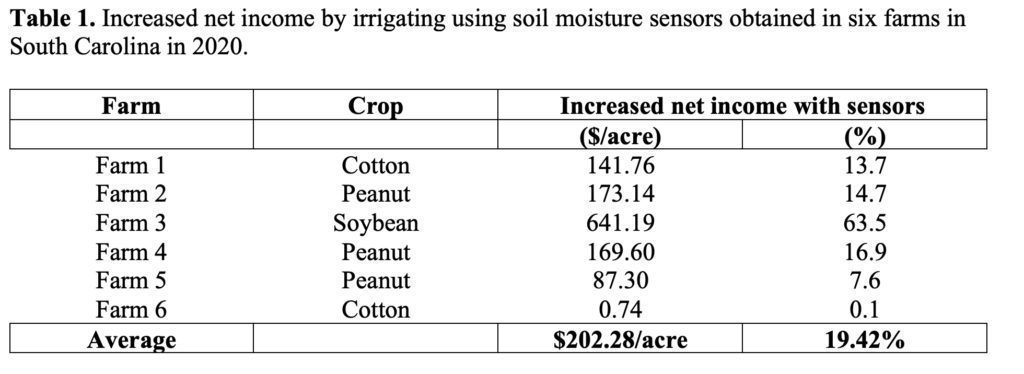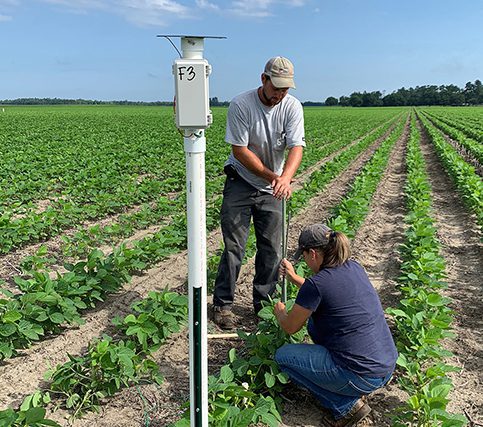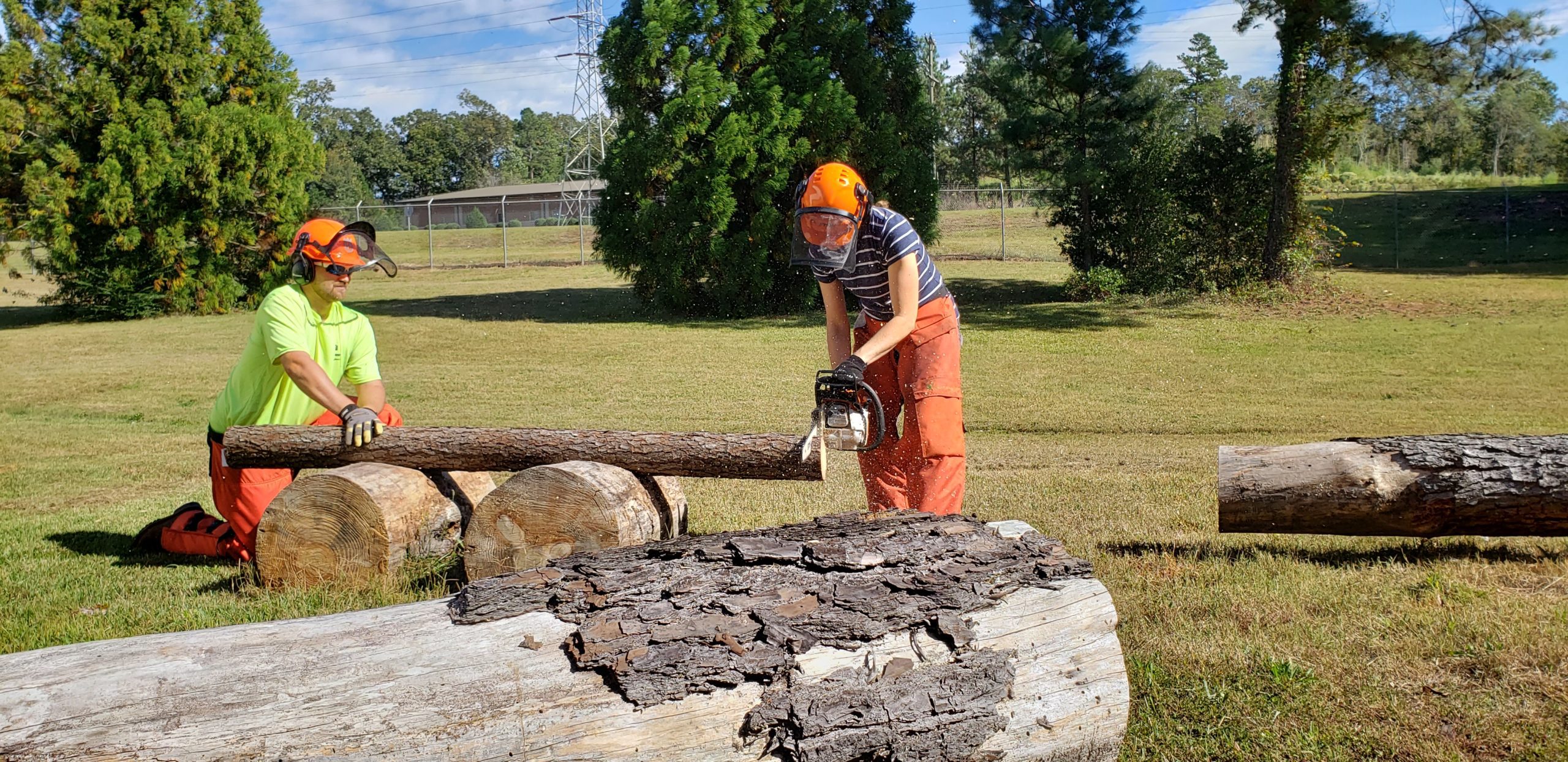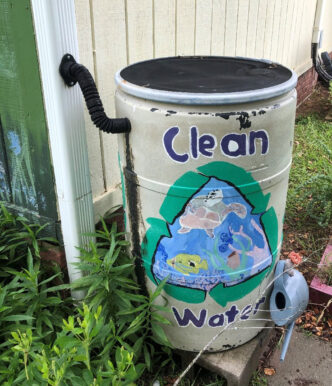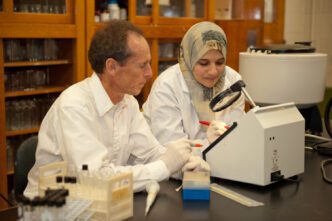BLACKVILLE, S.C. – A Clemson University irrigation specialist has found using soil moisture sensors in fields can increase average net income by almost 20%.
Jose Payero, assistant professor and irrigation specialist housed at the Edisto Research and Education Center (REC), is conducting on-farm trials to show farmers how using soil moisture monitoring technology can help them irrigate more efficiently. Soil moisture sensors were installed in six fields with different soil types in Allendale, Barnwell, Hampton, Lexington and Orangeburg counties. Each field was planted with either cotton, peanut or soybean.
“Soil moisture sensors were installed in each sensor field, while no sensors were installed in the companion fields,” Payero said. “Based on agronomic and economic data collected, we found the increased net income ranged from $87.30/acre to $641.19/acre or 7.6% to 63.5%. The average increased net income for all the six farms was $202.28/acre or 19.42%.”
The sensor fields were irrigated using center pivot systems. Farmers followed their standard irrigation practices to irrigate companion fields.
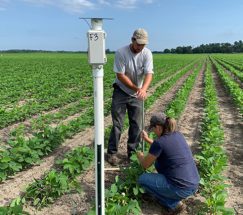
The farmers were trained to irrigate the sensor fields based on the collected soil moisture data using a few simple guidelines. They also were guided through installing and using the app to monitor the soil moisture level on their cell phones.
The technology the researchers are using is called the Clemson Water Management System. It was developed by Payero and uses sensors to collect and transfer data over a wireless network.
During the trials, soil moisture sensors were installed at four depths – 6, 12, 18 and 24 inches. Hourly data were collected automatically through a custom-made Internet-of-things (IoT) system, transmitting data to a Cloud server using a cellular network.
Although these results are for just one year, Payero said they look very promising. He and his team will continue on-farm trials on six farms in 2021 and another six in 2022 to see if the results hold.
“This easy-to-use, affordable soil moisture monitoring system will help growers enhance water-use efficiency and increase profits while substantially reducing water and energy use, erosion and leaching of chemicals such as pesticides and soil nutrients,” Payero said. “It also will help growers apply water at optimum rates where needed.”
Joe Oswald is a fourth-generation farmer at JCO Farms in Allendale County. His family farm is participating in the study. They grow corn, soybeans, cotton, peanuts, oats, rye and sorghum, as well as run 150 head of Angus cattle. Because this is a study, farmers and researchers are learning as the research progresses.
“This year we have been fortunate in that we haven’t had to run irrigation much on cotton soybeans and peanuts,” Oswald said. “Because corn requires more water, we had to water it earlier in the summer when conditions were dry. As for watering based on sensors we have in our soybeans, we have irrigated twice with that pivot on the test when the moisture gets to the threshold of -40 kPa. We did not irrigate the other half of the field which is our control because we would not have normally irrigated beans at that time. The sensor-side of the field has had 1 inch more of irrigation than the other half, so we have had an increase in water usage on the sensor-side.”
Oswald is learning how to adjust his system to adapt to crop irrigation requirements.
“We may need to raise the threshold on beans so that irrigation isn’t triggered as early,” he said. “The beans at that time were not in bloom yet and do not require as much water as they do once they start setting pods. That’s why we didn’t irrigate our side. I don’t know if that will result in a higher yield on the sensor-side but we will see after harvest. Over the past month we have not run much irrigation at all, we have been blessed with timely rains.”
Farmers who need more information or who would like to try using this technology can contact Payero at jpayero@clemson.edu.
The on-farm studies are part of a $500,000, 3-year project funded by the United States Department of Agriculture Natural Resources Conservation Service (USDA-NRCS) as an On-Farm Conservation Innovation Trial.
Payero is part of the Clemson Cooperative Extension Service Water Resources Program Team. This team consists of Extension specialists, associates and agents from around the state working together to address water quantity and water quality issues in South Carolina and beyond. The Water Resources Team conducts community outreach and education programs, public involvement opportunities and in-depth trainings and workshops for the citizens of South Carolina. The common goal of these services is to foster stewardship and sustainable management of water resources for current and future generations.
To contact a member of the Water Resources Program Team, go to https://www.clemson.edu/extension/water/team.html.
-END-
This work is funded by the USDA-NRCS, under agreement number NR203A750013G010. Any opinions, findings, and conclusions, or recommendations expressed in this material are those of the authors and do not necessarily reflect the views of the USDA-NRCS or Clemson University.
Related information and videos
